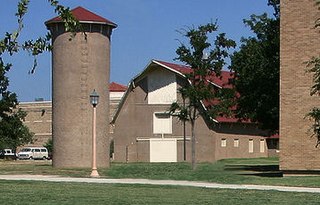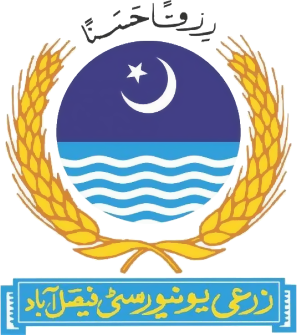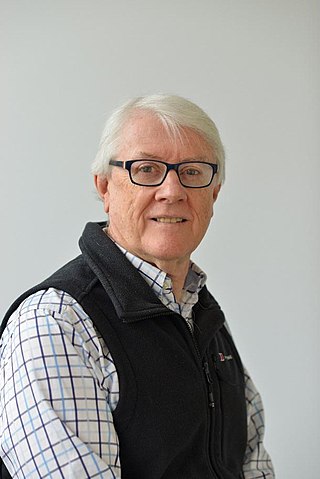External links
- International Farming Systems Collection
- IFAS
- List of publications from UIUC's Agricultural Communications Documentation Center
Peter E. Hildebrand earned his PhD from Michigan State University in 1959 in Agricultural Economics. He joined the University of Florida faculty in 1979 and retired on July 1, 2003. During that time, he served as Director and Professor for IFAS International Programs, Agricultural Economics (1972-1999), and as a professor of Food and Resource Economics. Hildebrand's international background encompasses work in over 31 countries over 35 years.
At the University of Florida, Hildebrand developed innovative methodological approaches to training research and extension programs to reach food producers in the United States and abroad. He developed many of the basic ideas and approaches are the foundation for the Farming Systems Research and Extension methodology. He was the founding president of the global Association for Farming Systems Research and Extension. He coordinated the University of Florida Farming Systems Program, coordinated the University of Florida Women in Agricultural Development Program, and provided support for the University of Florida Gender, Environment, Agriculture and Participation Program. His research is in the area of farming systems research-extension methods, gender analysis, small-farm livelihood systems, and tropical conservation and development.
In retirement, Hildebrand has continued his research including working on the development of the International Farming Systems Collection , a digital collection within the University of Florida Digital Collections that collects teaching, research, and extension resources pertaining to the Farming Systems approach to international agricultural development.
Agribusiness is the industry, enterprises, and the field of study of value chains in agriculture and in the bio-economy, in which case it is also called bio-business or bio-enterprise. The primary goal of agribusiness is to maximize profit while satisfying the needs of consumers for products related to natural resources such as biotechnology, farms, food, forestry, fisheries, fuel, and fiber.
Agricultural extension is the application of scientific research and new knowledge to agricultural practices through farmer education. The field of 'extension' now encompasses a wider range of communication and learning activities organized for rural people by educators from different disciplines, including agriculture, agricultural marketing, health, and business studies.

Agricultural education is the systematic and organized teaching, instruction and training available to students, farmers or individuals interested in the science, business and technology of agriculture as well as the management of land, environment and natural resources/

The University of Agriculture (UAF) is a public research university in Faisalabad, Pakistan. It's the largest university of Pakistan by area with covered area of 2550 acres as compared to Punjab University's 1800 acres which is the 2nd largest

Agricultural research in Israel is based on close cooperation and interaction between scientists, consultants, farmers and agriculture-related industries. Israel's semi-arid to arid climate and shortage of high quality water are major constraints facing Israeli agriculture. Through extensive greenhouses production, vegetables, fruits and flowers are grown for export to the European markets during the winter off-season.

The University of Florida Institute of Food and Agricultural Sciences (UF/IFAS) is a teaching, research and Extension scientific organization focused on agriculture and natural resources. It is a partnership of federal, state, and county governments that includes an Extension office in each of Florida's 67 counties, 12 off-campus research and education centers, five demonstration units, the University of Florida College of Agricultural and Life Sciences, three 4-H camps, portions of the UF College of Veterinary Medicine, the Florida Sea Grant program, the Emerging Pathogens Institute, the UF Water Institute and the UF Genetics Institute.

E. Travis York, Jr. was an American agronomist, professor, university administrator, agricultural extension administrator, and U.S. presidential adviser. York was a native of Alabama, and earned his bachelor's, master's and doctorate degrees in agricultural sciences. He served as the director of the Alabama Cooperative Extension Service, the administrator of the federal Extension Service, the interim president of the University of Florida, and the chancellor of the State University System of Florida.

The University of Florida College of Agricultural and Life Sciences (CALS), founded in 1964, is a college of the University of Florida.
The International Farming Systems Digital Collection within the University of Florida Digital Collections includes teaching, research, and extension resources related to the Farming Systems approach to international agricultural development.
Miguel Altieri is a Chilean born agronomist and entomologist. He is a Professor of Agroecology at the University of California, Berkeley in the Department of Environmental Science, Policy and Management.
The University of Maryland College of Agriculture and Natural Resources is the agricultural and environmental sciences college of the University of Maryland. Founded in 1856 as the Maryland Agricultural College in College Park, Maryland, it eventually went on to become the core of what is now the University of Maryland. The college offers both undergraduate and graduate degree programs in a variety of fields related to agriculture and environmental studies. Maryland's College of Agriculture and Natural Resources is often ranked among the better agricultural sciences schools in the United States.
The Irrigated Rice Research Consortium (IRRC) focuses on agricultural research and extension in irrigated rice-based ecosystems. In partnership with national agricultural research and extension systems (NARES) and the private sector, the IRRC provides a platform for the dissemination and adoption of natural resource management (NRM) technologies in Asian countries. The IRRC is currently active in 11 countries: Bangladesh, Cambodia, China, India, Indonesia, Laos, Myanmar, the Philippines, Sri Lanka, Thailand, and Vietnam. It aims to strengthen NARES-driven interdisciplinary research, link research and extension, facilitate rice farmers' uptake of technological innovations, and enable environmentally sound rice production to expand to feed growing populations.
Jimmy G. Cheek is Chancellor Emeritus and Distinguished Professor Emeritus of Higher Education in Department of Educational Leadership and Policy Studies at The University of Tennessee, Knoxville (UTK) and Former Director of the Postsecondary Education Research Center. He is also Professor Emeritus at the University of Florida. As the state's flagship research campus, UT Knoxville is currently ranked as a Top 50 public institution.

The Indian Institute of Spices Research (IISR) is an autonomous organization engaged in agricultural research related to spices in India. The institute has its headquarters in Moozhikkal, Silver Hills, Kozhikode, Kerala and is a subsidiary of Indian Council of Agricultural Research (ICAR), New Delhi, under the Ministry of Agriculture, India.
Werner Doppler (born December 15, 1941 in Oberlustadt, Germany is an Agricultural Economist. His areas of teaching and research have been Farming Systems, Rural Development and Socioeconomics in the Tropics and Subtropics. He was Dean of Faculty at the University of Hohenheim.

Raymond L. Ison is an Australian-British cybernetician, systems scholar/scientist, and Professor of Systems at the Open University in the UK. He is currently President of the International Federation for Systems Research (IFSR). He was also Professor Systems for Sustainability at Monash University, and fellow at the Centre for Policy Development, and President of the International Society for the Systems Sciences in the year 2014-15. He is known for his work on systems praxeology within rural development, sustainable management, systemic governance and the design and enactment of learning systems.

The Lilongwe University of Agriculture and Natural Resources (LUANAR) is a university outside Lilongwe, Malawi. It was formed in 2011 by a merger between Bunda College of Agriculture of the University of Malawi and Natural Resources College (NRC).
Digital agriculture, sometimes known as smart farming or e-agriculture, is tools that digitally collect, store, analyze, and share electronic data and/or information in agriculture. The Food and Agriculture Organization of the United Nations has described the digitalization process of agriculture as the digital agricultural revolution. Other definitions, such as those from the United Nations Project Breakthrough, Cornell University, and Purdue University, also emphasize the role of digital technology in the optimization of food systems.

Victor E. Cabrera is an American academic and researcher. He is a Professor and Extension Specialist in dairy farm management and Alfred Toepfer Faculty Fellow at University of Wisconsin-Madison’s Department of Animal and Dairy Sciences.
Anthonia Ifeyinwa Achike is a Nigerian agricultural economist. She is a professor of Agricultural Economics and head of the Agricultural Economics Department at the University of Nigeria, Nsukka.